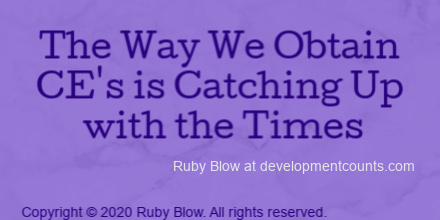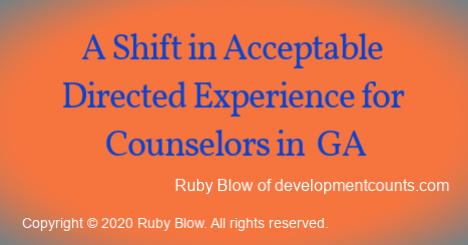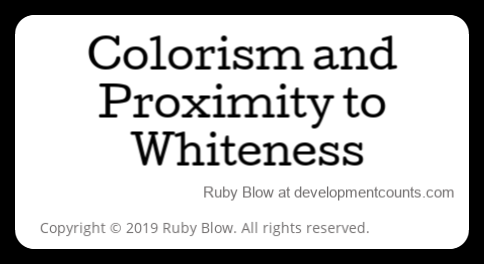One Exam, One License to Practice
A few years ago there was an effort to require the NCE (National Counseling Exam) for the Associate Professional Counselor status and the NCMHCE (National Clinical Mental Health Counseling Exam) for the Licensed Professional Counselor designation. Ultimately this measure did not stand because it would mean applicants were being tested twice for the same license. The license being the LPC, as the APC is an associate designation.
The fact that there would not be two exams led to a big sigh of relief for people pursuing licensure across the state. The prospect of taking two exams placed a heavy burden on applicants in terms of cost and preparation. I expected that one day all of this would be revisited by making the NCMHCE the required exam for counseling licensure in Georgia. I expected it at some point within the next 5 years. That time is now — more specifically over the next few years with regard to implementation if the Governor accepts these changes and signs off on them. If the Governor does sign off on the rule change that the GA Composite Board has already passed…then in January 2020, all counseling licensure applicants will have to pass the NCMHCE to become LPC’s in Georgia. If they apply to become APC’s first, then they will start with their APC status.
Parity with Other States
Most, if not all, of these changes are intended to bring Georgia’s standards for counseling licensure into alignment with standards in other states whose licensure processes have historically been more stringent than ours. This is important to the profession nationally because it can be very difficult for counselors when they move to other states to obtain their license. While am in full support of parity, I am increasingly concerned about how the profession is being augmented in pursuit of what will possibly someday be more portable licensure between states.
A Complex Exam with Many Potential Consequences
As a long time counselor, educator and clinical supervisor of both interns and post graduates seeking licensure, I have mixed feelings about this impending change. On the surface, it is a standard that is intended to ensure clinical competency among applicants. Underneath the surface, the consequences loom larger in my mind than what the surface suggests. In my opinion, the NCMHCE is a complex exam that will not necessarily lend itself to great results for the profession for the following reasons:
- It requires applicants to adopt a “managed care/utilization management” approach to mental health treatment, under the assumption that managed care leads to the best possible treatment outcomes. It is important to remember that managed care and utilization review (which supports managed care) are intended to manage treatment costs. This approach to treatment is relegated to those among us with the fewest resources. People with resources, whether they have insurance or not, choose to pay privately (out of pocket) both to protect their privacy but also to access the highest quality treatment. Subsequently, people who take the NCMHCE exam and work in settings that are not operating under a managed care model are disadvantaged. Counseling at its outset is a broad profession. We have a distinct identity. That identity is not Psychology and not Social Work. If you would like to learn more about counseling identity I wrote about it in this post Becoming a Professional Counselor.
- A switch to the NCMHCE implies that all counselors should have a clinical mental health orientation. While counselors who obtain a license have a right to practice independently…they have an ethical obligation to practice within their scope. Many counselors are providing services with the wounded well. We are not all practicing from a psychopathology approach. In fact, the counseling professional identity is not rooted in pathology. It is rooted in wellness. Graduate programs in counseling are not teaching toward the NCMHCE exam because, again, the NCMHCE involves a managed care mindset. Most, if not all, of the graduate students who take the exam at the end of their graduate program after their comprehensive exam take the NCE. The NCE is a fund of knowledge exam. It applies to general counseling knowledge that is applicable for counselors working in various settings. It involves 200 multiple choice questions across 8 content areas, 160 of the items are scored and 40 of them are questions that are being tested. The NCE involves 8 content areas:
- Human Growth and Development
- Social and Cultural Diversity
- Helping Relationships
- Group Work
- Career Development
- Assessment
- Research and Program Evaluation
- Professional Orientation and Ethical Practice
- I have supervised a fairly large number of people pursuing their APC and LPC status in Georgia. The failure rates I see with the NCMHCE are much higher than the NCE in general. Even more specifically, the failure rate by my black/African American or “person of color” supervisees is higher than my white supervisees. I am deeply concerned that in the future, if the NCMHCE becomes “the” exam, we will reduce our number or new LPC’s in Georgia who identify as a person of color.
- Lastly, it is my contention that this exam moves us toward “who is good at test taking” as opposed to who is a competent and even exceptional therapist. Being able to restrict oneself to the “thinking of this exam” does not necessarily bare out any meaningful answers with regard to one’s actual practice. The NCMHCE involves 10 clinical cases. After reading each case, the tester responds to questions that have multiple answers to select from. More than one answer can be selected for each question. The test taker is either gaining or losing points with each selection. Some items are neutral. So the point values are -3,-2,-1, 0, 1, 2, 3. The NCMHCE has 2 scoring categories: “Information Gathering” and “Decision Making.” So it is supposedly testing your ability to gather relevant information to support a diagnosis and treatment plan. Next…the implementation of that treatment strategy. This exam attempts to get test takers (and presumably therapists) to all respond the same way to a series of events and disclosures revealed in the clinical case. Therapy takes place in the context of a therapeutic relationship, not in the context of a written scenario with set ways of responding. It has also been brought to my attention that test taker’s lose a percentage of points whenever they view the hints provided within the exam. In summary, I do not believe this is a fair exam.
Interesting and Related Side Note
So how did this rule change (that the board has voted affirmatively on) come about? While I don’t have all of the details, it is seems that this rule change came about as a result of a little known act that was recently enacted in Georgia. It is called “The Georgia Professional Regulation Reform Act” O.C.G.A. § 43-1C-3 and it dictates that the Governor is “vested” with the duty to “actively supervise the professional licensing boards of this state.” It allows people to submit challenges of any rule or action of a licensing board. This includes existing rules, proposed rules and actions (i.e. board rulings/actions on matters before the board).
This reform allows individuals an opportunity on behalf of themselves or organizations to advocate for change by submitting a relevant set of circumstances and facts to the Governor. See for yourself – follow this link to the Appellant Action Form.
The Good News
The good news is…that licensees and interested parties who have concerns about the specific rules, proposed rules and/or actions of their respective licensing boards now have an option for seeking intercession. While I do not advocate that people overuse this option, I do think that professionals can benefit from having clearer access to the Governor’s office.
Copyright © 2018 Ruby Blow. All rights reserved.
Share your thoughts on Linkedin, Facebook, Twitter or log in to one of your accounts below to comment. Subscribe to my YouTube channel.





